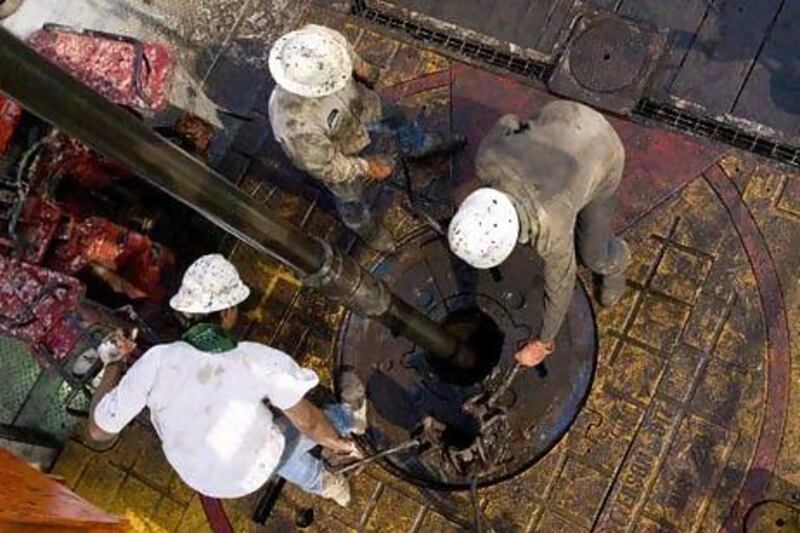The growth of natural gas production in the United States has set in motion an investment boom in the domestic petrochemicals sector that will result in American and Arabian Gulf producers competing for market share in Europe.
The shale gas revolution, which added to the supply with new production techniques, has driven down the price of natural gas, creating much better market conditions for chemical companies.
"Not very long ago, a number of clients said they wouldn't invest in the US any more," said Jose Bustamante, a senior vice president at Fluor, an engineering and construction firm with a broad portfolio in the energy and downstream sectors. "Now, there are a number of opportunities coming up. I think we are getting into a new boom in investment in the US."
Fluor is working with the US giant Dow Chemical and Germany's BASF to explore the potential for new production complexes.
International oil companies such as Shell are also planning to expand their US petrochemicals business, with Shell planning a cracker feeding off the massive Marcellus shale gasfield in the Appalachian mountains.
"US natural gas is abundant and affordable," Marvin Odum, the president of Shell, said last year.
The market benefits simultaneously from the availability of gas, the prime feedstock for petrochemicals alongside crude oil, and the proximity to end users.
"The basic question is always the same: do you want to be close to [gas] production to be cost-competitive, or do you want to be close to the market? In the US, all [of a] sudden you have cheap feedstock, and a large market," said Mr Bustamante.
Experts predict that the shale revolution will not only turn the US into a net exporter of gas, but also lead to increasing exports of petrochemicals. This will lead to US and Gulf producers competing for market share in Europe, which is within reach of North America and the Middle East.
"There will be some impact because of the attractiveness of the European market that will be served both from the Middle East and probably by the US to some extent," said José Alberich, a partner at the consultancy AT Kearney.
With gas prices in the US having dropped to about US$2 per million British thermal units (mmBtu), US petrochemicals are increasingly price-competitive, even if Gulf producers still pay only $1 per mmBtu for gas.
US competition in Europe does not threaten the ambitions of GCC producers to expand their share of global production, said Mr Alberich, as they will benefit from a decline in capacity in Europe.
The Gulf Petrochemicals & Chemicals Association estimates that the global market share of its members will increase from 15 per cent last year to 20 per cent in 2015.
The regional petrochemicals market is dominated by Saudi Arabia, home to Saudi Basic Industries Corporation, the world's largest producer in the sector.
The kingdom is also the site of the world's biggest petrochemicals project, the $20 billion (Dh73.46bn) Sadara joint venture between Dow Chemical and Saudi Aramco.
Fluor has been awarded a $3bn contract to build part of the infrastructure for the project. The US firm is also involved in the Shah sour-gas project in Abu Dhabi, where it undertook initial engineering work, and holds the licence to the technology that strips the gas of its toxic sulphur.
Shah is part of Abu Dhabi's efforts to increase its gas reserves to supply its growing petrochemical industry and meet the soaring demand for electricity.
Fluor is also carrying out early engineering work to expand the Integrated Gas Development project in Habshan, a mega-gas processing complex operated by the Abu Dhabi National Oil Company subsidiary Gasco.
twitter: Follow and share our breaking business news. Follow us
iPad users can follow our twitterfeed via Flipboard - just search for Ind_Insights on the app.





